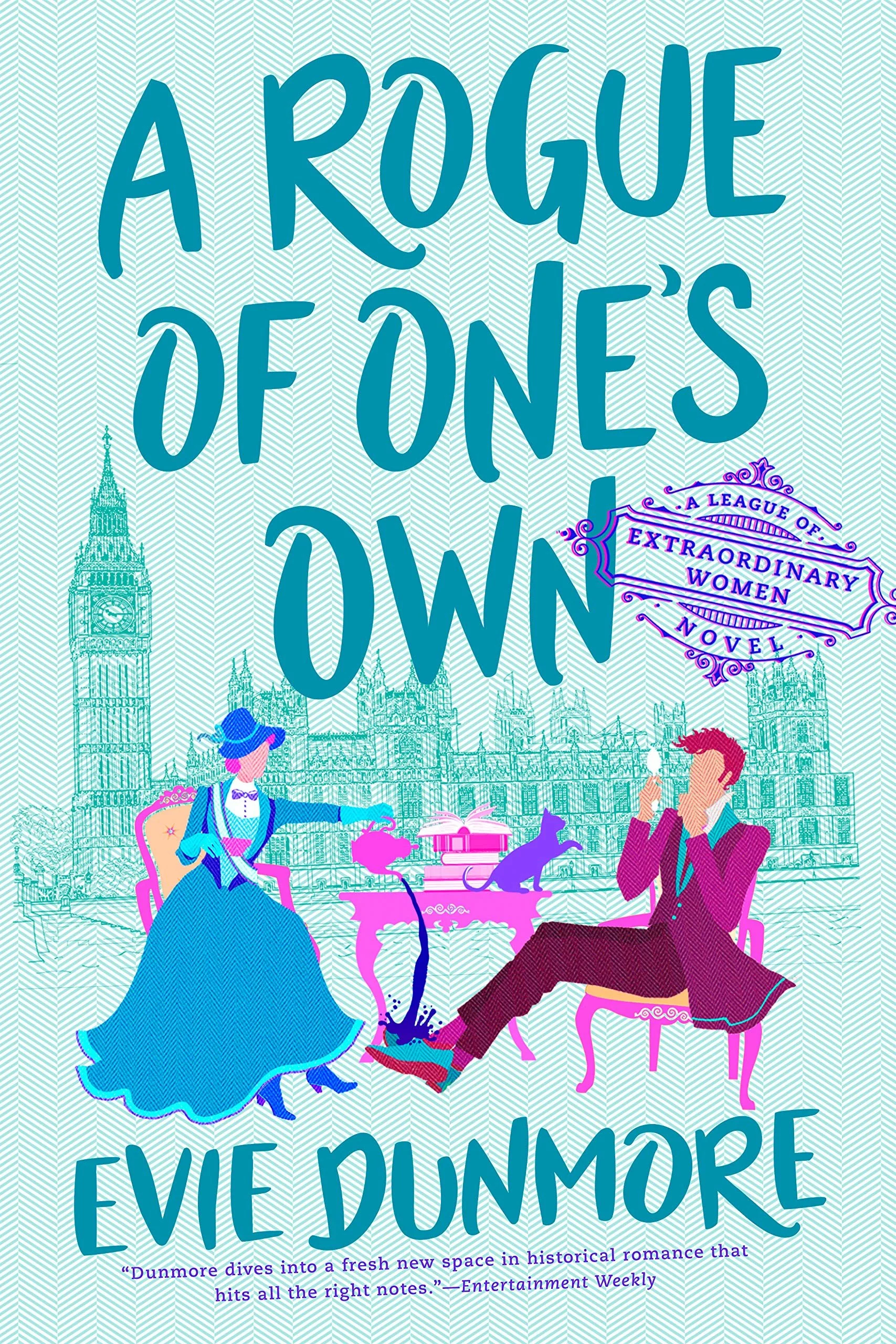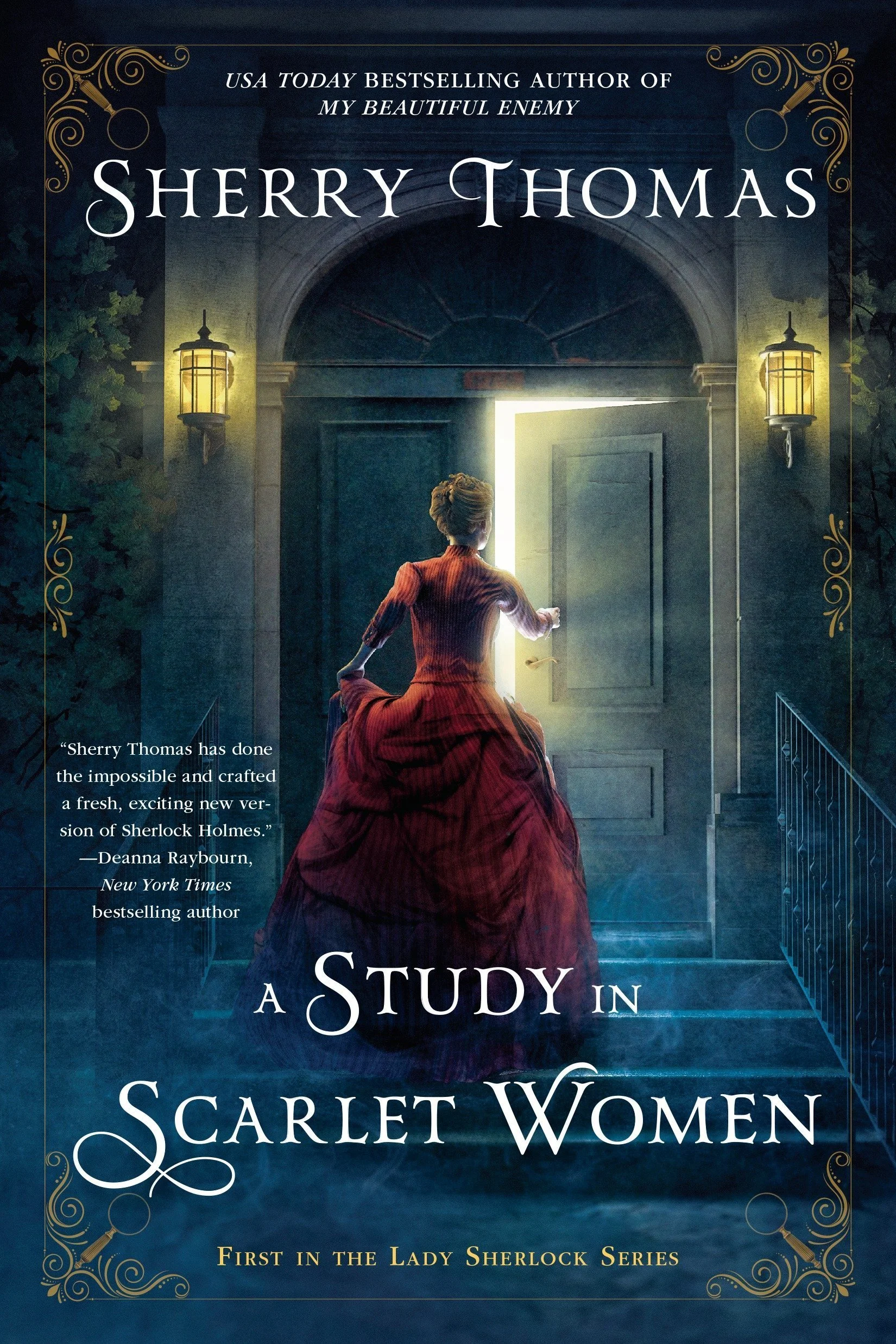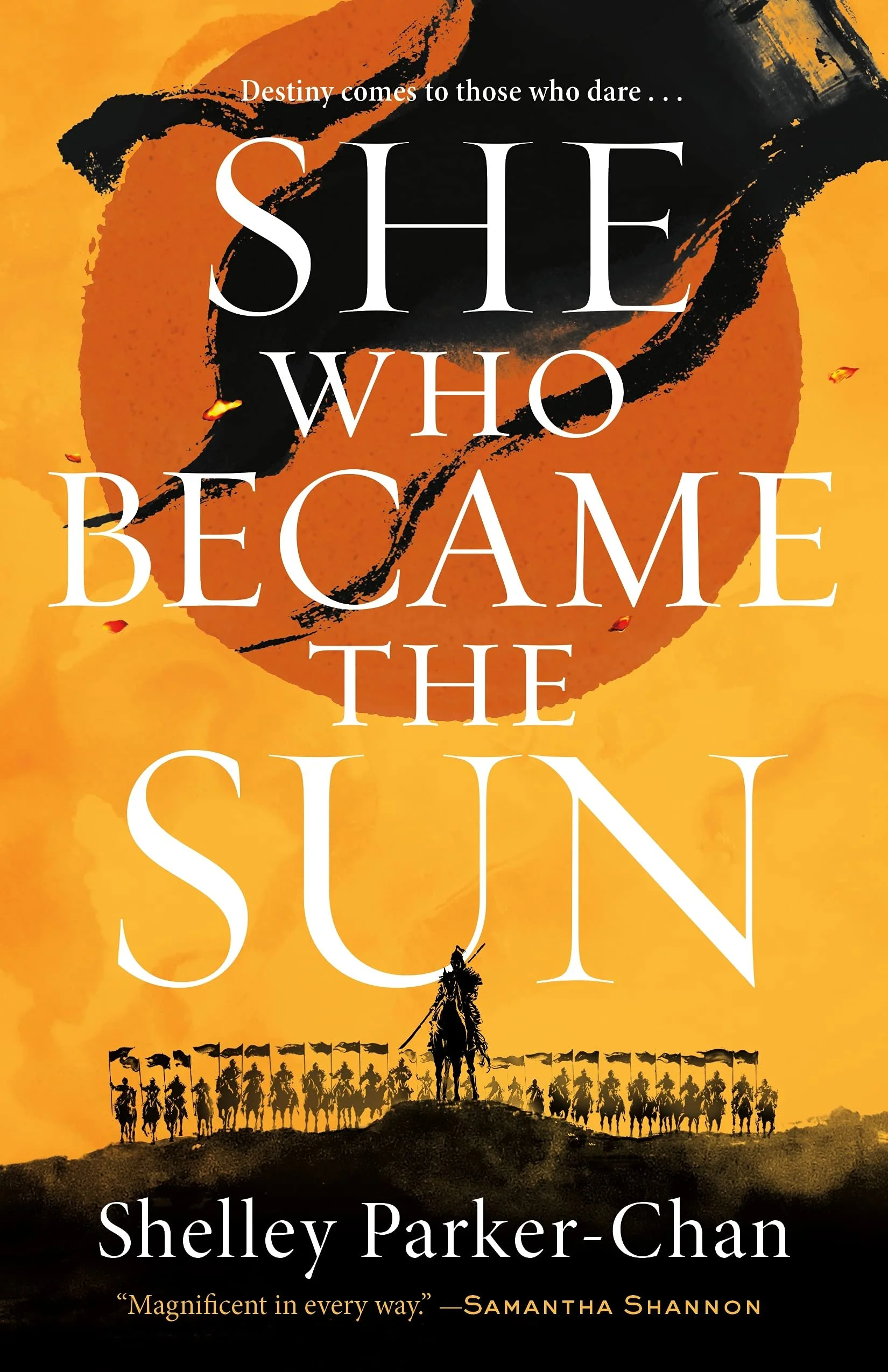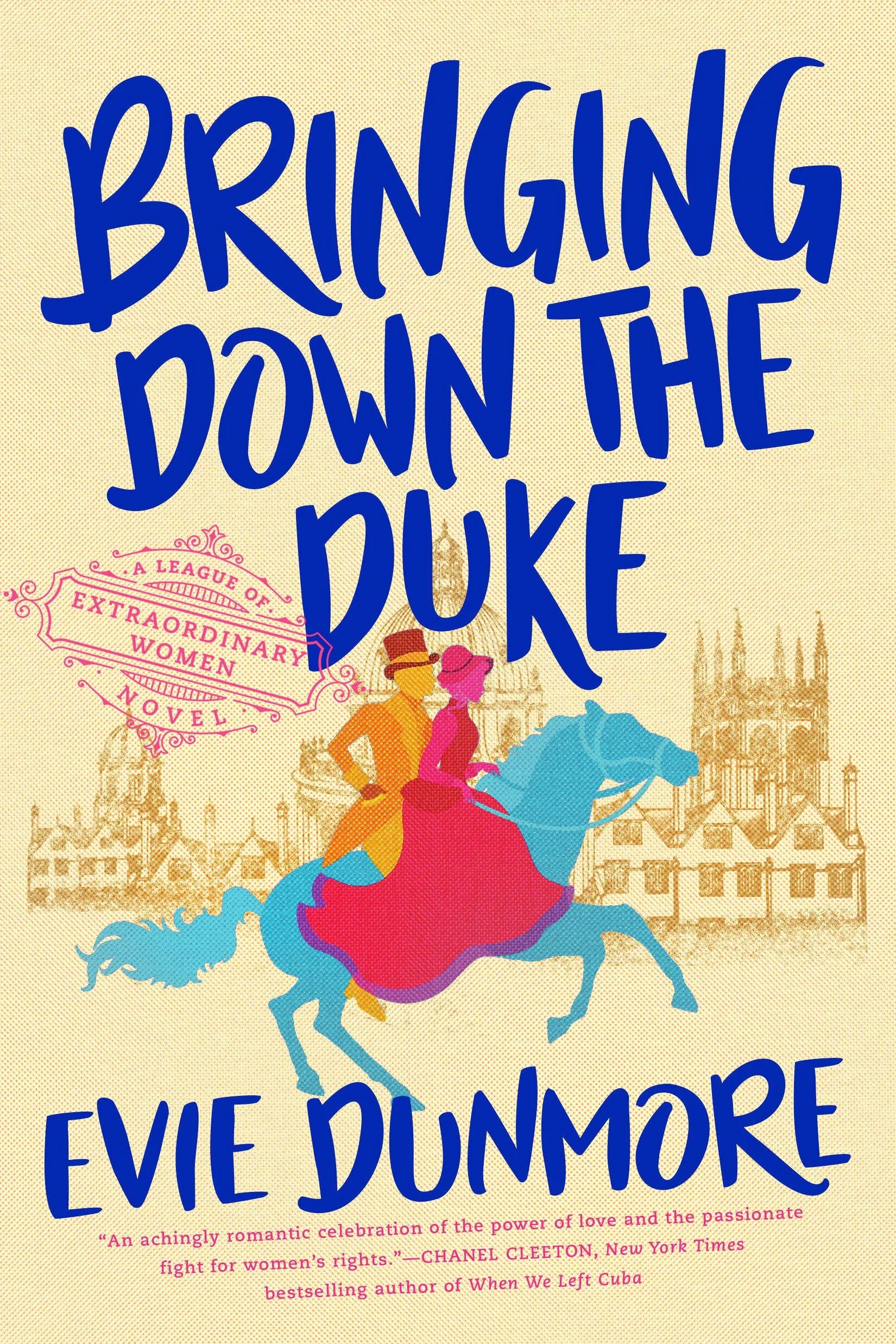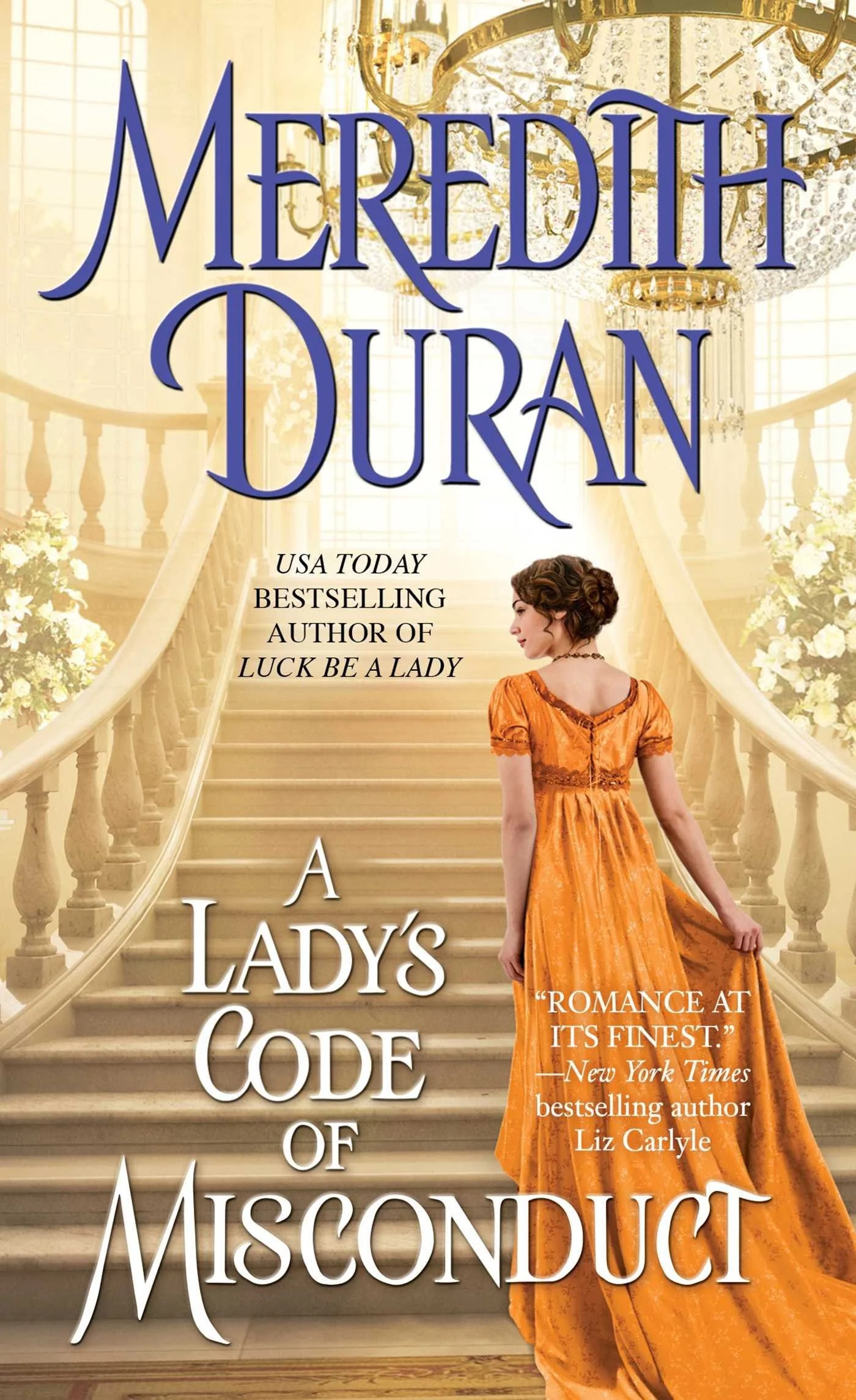A Rogue of One's Own by Evie Dunmore
A Rogue of One's Own is the first companion novel to Bringing Down the uke. This time we are following Lady Lucie, the spinster leading the Oxford suffragists, and Lord Tristan Ballentine, the war hero and absolute rogue who have known each other since childhood. Lucie has no desire to fall in love because she is politically opposed to marriage as long as she is unable to retain her own assets upon entering marriage and Tristan is being coerced into marriage by his terrible father. The pair begin to spend more time together once they are both heads of the same publishing establishment.
My opinions on this book are quite divided. I was absolutely ecstatic reading the first 100 ish pages, then I had some pretty significant issues with much of the middle, and then went back to loving the end. My problems with the work are entirely in content and not in execution, I still think Dunmore writes beautifully and in such a way that really does motivate a reader to keep turning the page, despite this feeling I did put this book down for about a month before deciding I would finish my read.
My problems with the content in this book are also divided, I really loved that the hero was a bisexual man and that this was never the source of conflict with Lucie. However, the only gay male character is a lovesick villain. He does get a bit near the end where he is humanized and Tristan has to face that he does not understand this character fully and that he has treated him poorly, but I really wanted him to be a bit less cartoonish in his villainy.
I also didn't love the way Tristan's military career was spoken about in the first three-quarters of this book. We do get a somewhat self-aware analysis about British imperialism at the end of the story, but you do have to read a long time before there is the slightest critique of imperialism in a series focused on advancing the rights of one group. Also, Tristan has a Hindu goddess tattooed on him, and does admit that this was not the most culturally sensitive act, but I just think that the exact same conversations could have been had if Tristan had been adorned with literally any other tattoo. I know that this war actually happened, I know that people did have valets from India, and I understood why Dunmore wanted to talk about these two things, I just think it was done clumsily.
My third issue was I feel like the beginning of Lucie and Tristan's physical relationship was so coercive as to have made actual free consent impossible and the book does not treat the situation as such. I do think Lucie was clearly in a social position where she could not have been the one who sought out a physical relationship with a man, but I do not see why this should have had to be what was in the final draft.
It just seems like all three of these topics could have been handled better. They all (except the humanizing of Tristan's valet) were addressed somewhat in the text, but I don't think Dunmore handled any of them particularly well.
One issue that I do think was incredibly well done was the way she wrote about Tristan's life also being negatively impacted in multiple ways by women's lack of financial and social freedom. I really liked that Tristan was looking at the political issues of women not just through the eyes of the women he was romantically linked to. This is a problem I often have with other romances that have a man become a feminist in them, and this book avoided that. I like that Tristan listens to women throughout the book, and not just Lucie, that he clearly holds Lucie in very high regards, and that he is able to admit fault, apologize and change his behavior demonstrably.
Dunmore is incredible at writing men apologizing to women they have wronged. I am not sure why it is my very favorite thing but it absolutely is. Tristan is shown to be deeply invested in not wanting Lucie to need him, but wanting Lucie to like and want him. He does not need to hold any authority over her, he just wants her to willingly tie their lives together and I adore it.
Another thing I adore about this series is the way the female friend group continues to be at the center of this story. I am so excited to read Hattie and Catriona's books because I really care about this friend group and I want to see each of them as the center of their own story.
Overall I thought some of this book is a bit clumsy, some of it well handled, some of it enthralling, and yet I was perfectly able to put this book down for a month right in the middle. A mixed bag overall, but I did enjoy the way the book concluded.

